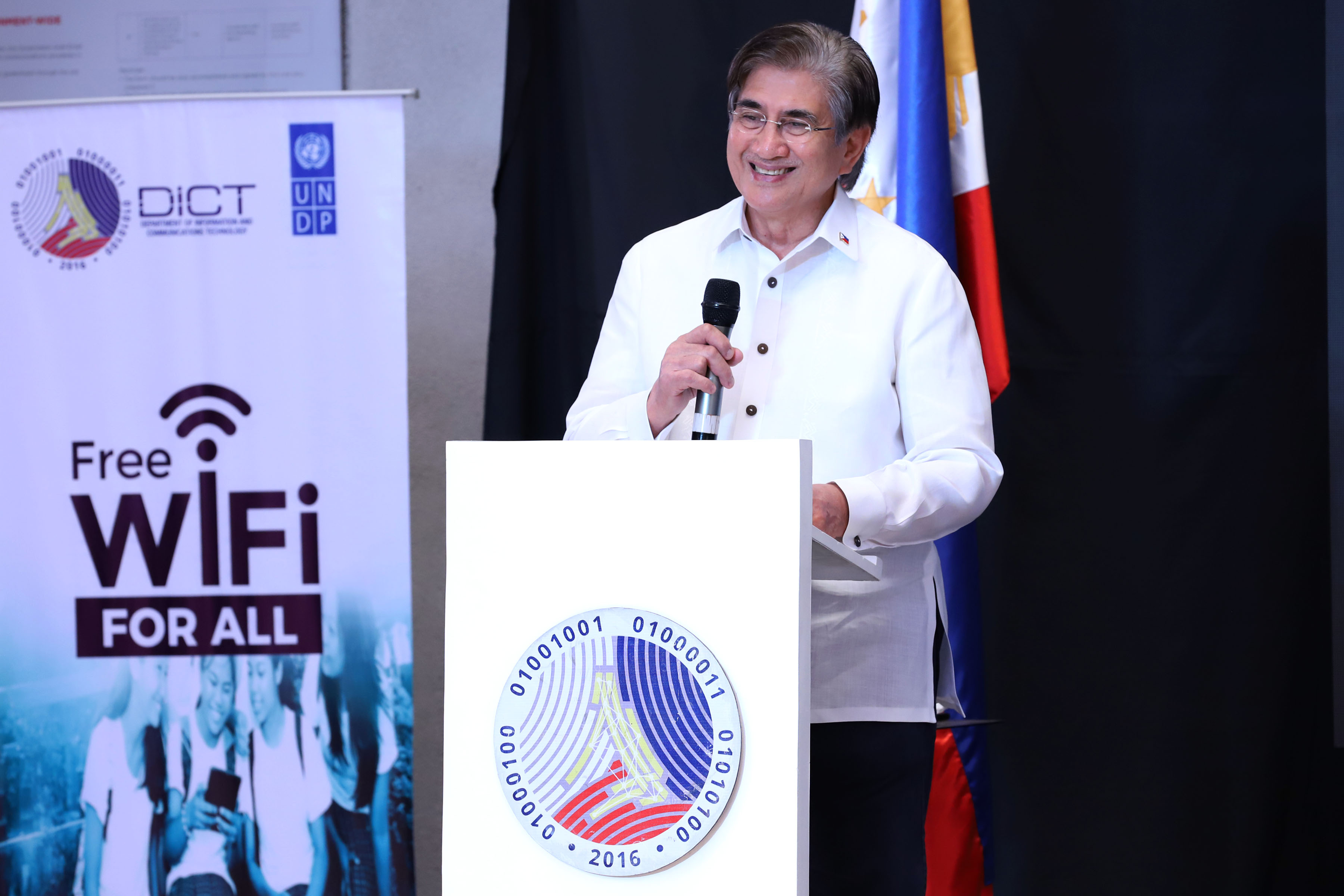
MANILA – A total of 12,000 free Wireless Fidelity (Wi-Fi) access points will be distributed to remote and poverty-stricken areas in the country within this year, an official of the Department of Information and Communications Technology (DICT) said on Thursday.
In an interview after the launch of the DICT’s “Free Wi-Fi For All” program in Quezon City, DICT Undersecretary Eliseo Rio Jr. said the Wi-Fi terminals, which used very small aperture terminal (VSAT) technology, will not rely on the mobile service availability of commercial telecommunications (telco) companies such as Globe Telecom or Smart Communications.
“We are no longer dependent on the connectivity of our commercial telcos. So, pwede kami pumunta kahit saan (we could go anywhere), and we have our own bandwidth now,” Rio said.
Currently, the program has installed a total of 69 VSAT Wi-Fi terminals in various remote locations in the country, with the number of installations expected to ramp up to 3,000 by June and 12,000 by the end of the year.
“We are going to put up by June, 3,000 of these and before the end of the year, another 3,000 using 2019 money. For 2020, we will have that much for a total of around 12,000 before the end of the year,” Rio said.

He said the terminals are mandated by law to provide a minimum of 40 Megabits per second and will be protected from cybersecurity attacks and censored by the DICT.
“We do not allow content sa free Wi-Fi natin (in our free Wi-Fi) like pornography, or mag-download ka ng mga sine, hindi yan allowed (or downloading movies, that’s not allowed). So, you use the connectivity really for getting information or giving out information for economic advancement,” Rio said.
The bandwidth used by the terminals, he said, is currently purchased in bulk from Globe and Smart and cost about PHP40 million per month for 3,500 Wi-Fi terminals alone.
However, he said once the Luzon Bypass Infrastructure is completed—which is set to provide an additional 2 Terabytes per second of connectivity to the country courtesy of Facebook—the terminals’ bandwidth will not only increase but will also cost next to nothing to the government.
“If we will replace that now with Facebook, we will get actually 2 Terabits per second at almost no cost. Ito marami na talaga kaming bandwidth na mailagay kung saan kailangan (This is where we’ll get a lot of bandwidth which we can use wherever needed),” Rio said.
He added that each terminal can be easily installed, only needing its base to be set and be made “typhoon-proof” in vulnerable areas.
The launch of the Free Wi-Fi program was held simultaneously in remote areas in Davao City, Albay, Isabela, Lanao Del Sur, and Palawan and was broadcast live at the DICT headquarters using the VSAT terminals.
During the event, UNDP Representative for the Philippines Titon Mitra said the DICT has promised to have least 6,000 free Wi-Fi terminals to be up by the end of the year.